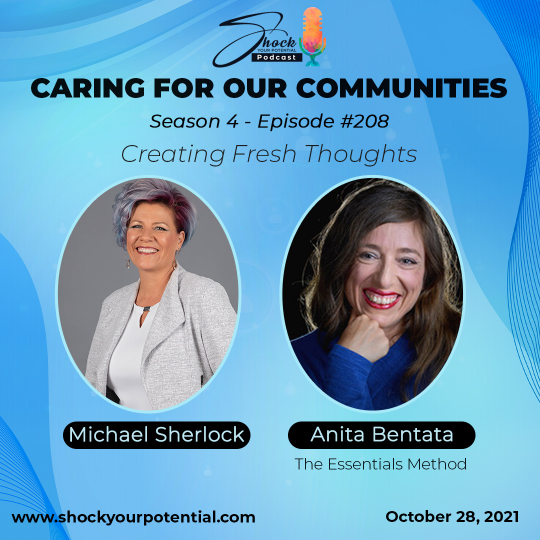In this chapter, Michael Sherlock shares her emotional rollercoaster following the first failed attempt to capture Fred, a stray cat. This episode delves into the frustrations, realizations, and strategies as Michael navigates the challenges of building trust with Fred while ensuring Penelope’s safety.
- Emotional Aftermath of the First Attempt:
Michael struggles with feelings of worthlessness and frustration after the failed capture.
Replay of the incident in her mind, fearing Fred may have been hurt and might not return.
- Fred’s Unexpected Return:
Fred appears at the back door the next morning, bringing a rush of relief and happiness to Michael.
Michael realizes the importance of remaining calm and adapting her approach.
- New Strategies:
After reassessing, Michael orders a larger cage and implements calming probiotics for Fred.
Attempts to make the environment inviting, including using a new fancy cat dish.
- Building Trust:
Michael leaves treats in the cage, gradually encouraging Fred to associate it with positive experiences.
He places wet food at the back of the carrying case to coax Fred inside, showcasing a mix of creativity and determination.
- Second Capture Attempt:
Michael sets up a more secure kennel with a full metal door, feeling prepared for the next attempt.
Despite her efforts, Fred evades capture yet again, prompting feelings of annoyance rather than despair this time.
- Mindset Shift:
Michael writes an open letter to himself, emphasizing the need to view setbacks as learning opportunities.
She recognizes the importance of understanding Fred’s perspective and the realities of her situation.
- Advice from Friends:
A friend suggests simply inviting Fred in, but Michael remains focused on ensuring Penelope’s safety first.
Balancing the desire for a quick resolution with the need for patience and understanding becomes a key theme.
- Shifting Perspectives:
Mama’s Viewpoint:
Michael reflects on her frustrations and the ticking clock as their trip approaches, feeling pressure to capture Fred.
Fred’s Perspective:
Fred senses Michael’s stress and remains puzzled by the constant changes on the porch.
He enjoys the food and presence but questions why Michael can’t just relax and let things be.
Michael’s journey reflects the complexities of human-animal relationships, emphasizing the need for patience, empathy, and adaptability. Tune in to see how these dynamics evolve in future chapters.
Catch us next time for another episode of the Shock Your Potential Podcast!
************************
Who is Michael Sherlock?
Don’t be fooled by the name, the hair color, or crazy shoes. Michael Sherlock is serious about business. She is dedicated to creating positive, productive, and profitable workplaces, and helping individuals and businesses unlock their ultimate potential.
Before launching her global training company, “Shock Your Potential”, Michael was Vice President of US Sales for two multi-national medical device companies, responsible for net revenue exceeding $75 million and as many as 500 employees at a time. Michael has been referenced in Forbes, quoted in Yahoo Finance and is a frequent media expert concerning hiring and employee management on local and national news outlets such as 6ABC in Philadelphia, ABC 13 in Houston, Daily Blast Live, and more.
Michael is a two-time best-selling author and recently released her third book, in a totally unique format, Operation Fred – What a Street Cat Taught Me About Leadership. Her fourth book, The Enlightened Workplace will be released in 2025.
************************
Have you met Fred? Buckle up for an adventure with Fred, the feline friend who’s here to show you how leadership, friendship, and life lessons can be as delightful as a catnap in a sunbeam!
Welcome to Operation Fred—an online book bursting with 25 chapters of feline wisdom and fun. Each chapter is a purrfectly crafted tale paired with a leadership and life lesson that will leave you purring for more.
Curious about what Fred has to share? Dive into Chapter One and Lesson One, now available on our website. Link: https://thefredchronicles.com/aboutfred/
Get ready to be whisked away into a world where business smarts meet cat charm!
Learn more: https://thefredchronicles.com/
Get ready to be whisked away into a world where business smarts meet cat charm!
Follow us today to know more about Fred:
- Website: https://thefredchronicles.com/
- Facebook: https://www.facebook.com/operation.fred.2024/
- Instagram: https://www.instagram.com/operationfred/
To connect with Michael follow her on:
- LinkedIn: https://www.linkedin.com/in/michaelasherlock/
- LinkedIn: https://www.linkedin.com/company/shockyourpotential/
- Twitter: https://twitter.com/MichaelSSpeaks
- Twitter: https://twitter.com/SYP_Leadership
- FB: https://www.facebook.com/MichaelSherlockSpeaks/
- Instagram: https://www.instagram.com/shockyourpotential/
- YouTube: https://bit.ly/2E1TcA8




